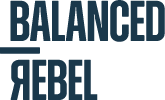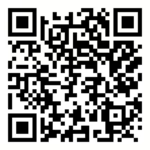In our fast-paced, always-on world, the concept of rest has become almost taboo. We’re constantly bombarded with messages glorifying the hustle, celebrating long hours, and equating busyness with success. However, this relentless pursuit of productivity often leads to burnout, fatigue, and a severe imbalance in our work-life equation. It takes courage to step back and prioritize rest in a culture that seems to value constant activity above all else.

Rest is not merely the absence of work; it’s an active process that rejuvenates our mind and body, ultimately supporting and sustaining our productivity. As counterintuitive as it may seem, taking time to rest can actually make us more efficient and effective in our professional lives. Research has shown that well-rested individuals demonstrate improved focus, enhanced creativity, and better problem-solving abilities.
However, it’s crucial to understand that not all downtime is created equal. In our modern, hyper-connected world, we often mistake distraction for rest. Scrolling through social media, binge-watching TV shows, or constantly checking emails may feel like a break from work, but these activities don’t provide the restorative benefits of true rest. Consider the average office worker who spends up to 2.5 hours a day on their smartphone. This time isn’t restful; instead, it fragments attention and increases stress levels. Similarly, the constant barrage of notifications from various apps and platforms creates what researchers call “digital noise,” interrupting our focus every 15 minutes on average. These distractions not only hamper productivity but also prevent us from experiencing genuine rest. Other common workplace distractions include excessive meetings, office gossip, and competing deadlines.
While these may seem like breaks from actual work, they often contribute to mental fatigue and stress rather than alleviating them. It’s important to recognize that being busy doesn’t equate to being productive, and that constant activity without proper rest can lead to decreased performance over time.
The consequences of neglecting rest can be severe. Chronic overwork without adequate recovery can lead to burnout, a state of physical, emotional, and mental exhaustion. Burnout not only affects our work performance but also impacts our personal relationships and overall quality of life. It’s a state that’s increasingly common in our “always-on” culture, with many people feeling constantly tired and overwhelmed.
To combat this, we need to cultivate a new relationship with rest. This means having the courage to set boundaries, say no to unnecessary commitments, and prioritize our well-being. It involves recognizing that rest is not a luxury or a sign of weakness, but a fundamental necessity for our health, productivity, and longevity.
Longevity coaches and wellness experts emphasize the importance of intentional rest practices. These can include mindfulness meditation, regular exercise, and ensuring adequate sleep. For instance, adults need 7-9 hours of quality sleep to function at their best.
During sleep, our bodies repair themselves, and our brains process information and clear out toxins, preparing us for the challenges of the next day. Another crucial aspect of rest is taking regular breaks throughout the workday. Research indicates that our brains move from full focus to mental fatigue every 20 minutes. By incorporating short breaks, we can prevent decision fatigue and maintain higher levels of focus and creativity throughout the day.
Achieving a healthy work-life balance is not just about personal well-being; it’s also about long-term career sustainability. By prioritizing rest, we invest in our future productivity and professional longevity. We become more resilient, better equipped to handle stress, and more likely to avoid the pitfalls of burnout.
Organizations are beginning to recognize the value of rest in fostering a productive and engaged workforce. Some companies are experimenting with four-day workweeks or encouraging employees to take regular sabbaticals. These initiatives acknowledge that rest is not antithetical to productivity but rather a crucial component of it.
In conclusion, embracing rest requires courage in a world that often equates busyness with worth. It means resisting the urge to fill every moment with activity and instead allowing ourselves time to truly recharge. By distinguishing between genuine rest and mere distraction, we can cultivate practices that support our well-being and enhance our productivity. Remember, rest is not a reward for productivity; it’s a prerequisite for it. In the long run, the courage to rest may be the key to sustained success, both personally and professionally





